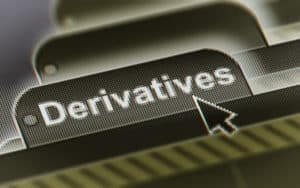
Alternative options to CFDs
CFDs are a great option if you want a way to start getting into the trading world. However, there are plenty of alternatives, rather similar options, available to you for the very same goal. This is because CFDs are among a variety of derivatives. Derivatives are contracts that allow you to benefit from the price change of an asset without necessarily owning the asset. The price derives from the value of the asset. This means the prices you set for your contract do not have to be as high as the actual asset, although it obviously does scale with the asset (this depends on the specific contract). These types of contracts make the market far more accessible to low-level traders. They are also beneficial for people who may want to ensure that trade will definitely go through.
As such, we will need to discuss all of the most common types of derivatives and see how they stack up against CFDs. These derivatives include Forwards, Futures, and Options.
Forwards and Futures contracts
Forwards are the simplest type of derivative there is. All it promises is a set price and the date at which you will transfer an asset. They are arranged between two individuals, with no third party. This could be beneficial as the parties can arrange any contract they want. However, if things go wrong they will have to deal with each other directly.
To remedy the possible unfortunate circumstances leading from this, exchanges created futures contracts. Future contracts are much the same as forwards. The only real difference between them is that future contracts are found on an exchange. An exchange arranges them and acts as an intermediary between the two parties. The contracts come more standardized, but there is less risk as a result. This is why these contracts are best sought out if someone is trading without experience. The exchange helps arrange all the details in their place.
CFDs against futures
Comparing CFDs against forwards would not get us very far, as these are highly informal contracts, which people arrange themselves. Instead, we shell note how they compare against futures contracts.
Futures contracts are one of the most basic types of contracts out there. They were invented for markets to deal with high volumes trade of commodities, mainly agricultural products. Conversely, CFDs can be used for any asset. Since you are not trading any real products, you can take on any asset you want for your trade. You also can set a much lower price with a CFD, because, as we said, you are not trading any real assets. All you are doing with CFDs are prospecting on the price change of an asset.

CFDs do not have any set expiry date. One of the parties can carry your trade out whenever you please when it comes to CFD trading. This allows you to avoid a trade if are disadvantages for you at a particular moment. Futures contracts stand in direct contrast to this. They are used specifically to ensure a trade goes ahead at a particular time. The price in futures contracts is also set and does not change with the market. So, we could say that CFD contracts are far more flexible than futures and highly favors one partner in the deal.
CFD flexibility
Traders have to arrange CFDs with the help of a broker. Futures, by contrast, are almost always on exchanges. This is because futures are highly regulated, whereas the rules around CFDs are a lot looser. This makes quite a difference. Brokers can set up any kind of deal you want with a CFD, as long as the other party agrees. Futures come a lot more standardized. Futures are usually intended for large-scale trades, for large companies. While CFDs appear to be the obvious choice in this situation, the truth is a little more complicated. CFDs are a lot riskier, as the broker you choose will have a great effect on your deal. They may simply go along with any trade you want, or they may offer you advice and help you out. You will have to determine how trustworthy a broker is yourself.
Finally, since you carry out CFDs through brokers, everything tends to be a lot simpler. As long as you have a broker you trust, you do not have to continuously open new accounts just to set up new trades. Since futures are on exchanges, you will have to open a new account for every new kind of trade you want to do.
- Test your knowledge of CFD options and terms. Take the quiz!

Options contracts
Options contracts are a step beyond futures in terms of complexity. They give one of the traders an option when the contract expires. They can either go through with a trade, or they can pay a fee. Traders interested in using options have a couple of different varieties to choose from. They could either go for put or call options. A put option essentially means selling an asset. A call option, quite appropriately then, is buying an asset. You can then combine one of these options with going long or going short. Going long means you believe an asset’s value will increase. Going short, means you believe it will decrease. So, overall these contracts offer more flexibility than contracts but still offer some restrictions.
CFDs against options
Once again, CFDs do have a bit more flexibility than options contracts do. As such, you have to use brokers to deal with both types.
While CFDs do allow you to trade at any time, it is foreseeable that an asset’s value never meets their expectation. Options contracts allow you to back out of a trade if it has soured. In fact, once you cancel one contract you can pick up another in the opposite direction without great losses.
There are some safeguards to this for CFD trading, fortunately. You can use market orders to make sure you carry trade out if an asset value goes too far in one direction.

Options contracts are usually best for stock and index trades. Meanwhile, CFDs, again, are available for any asset. This is another aspect in which CFDs are more flexible.
CFDs are also much easier to handle than options. For CFDs, the trade is simple. You know the price you want, and you set the trade for that price. Options give you a variety of choices, and you can combine multiple options contracts to ensure your intended outcome. So the strategies can get a bit complicated.
Conclusion
Overall, if you are a first-time trader, CFDs are a nice option for you. They give you some flexibility without being overly complicated. They can indeed be a bit risky, but as long as you get a trusted broker and do not invest too much liquidity, you should not worry.
- Checkout FinanceBrokerage’s comprehensive review on Invxsler
-
Support
-
Platform
-
Spread
-
Trading Instrument




